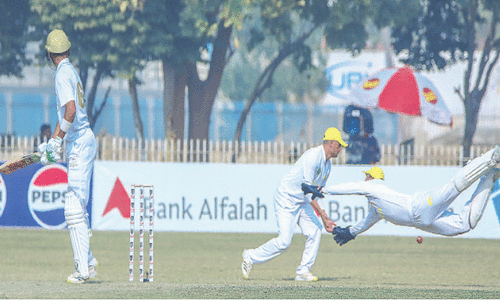MANILA, Oct 23: The Philippines is open to calls to halt an army offensive against Muslim rebels, the most senior military commander in the south said on Thursday, adding that the conflict was taking a large toll in lives and money.
“We are open to a ceasefire because we realise that we can’t end this problem by annihilating each other,” Lieutenant-General Cardozo Luna, the military’s vice chief of staff and commander of all military forces on southern Mindanao island, told reporters.
“But, we have to do what we’re doing now.”
Luna said any decision to halt the offensive and return to peace negotiations with the Moro Islamic Liberation Front (MILF) would be a political issue.
“Our police operations would continue until we are told to stop,” he said, adding the military was aware of numerous calls from church groups and non-government organisations for a truce due to the death and destruction in the south.
Luna also said the conflict was expensive.
He said the military has spent about 600 million pesos ($12 million) on fuel and ammunition alone since violence erupted in mid-August after a deal to expand a Muslim autonomous region in the south of the mainly Catholic country was stopped by the Supreme Court.
Nearly 300 people have been killed in more than two months of fighting in six southern provinces after rogue MILF members went on the rampage, burning houses and farms and killing civilians.
“Our expenses are so huge because of the sudden increase of fuel prices,” Luna said, adding the government was also spending large sums of money to pay families of 43 dead soldiers and for the treatment of more than 100 wounded.
The military has asked the president for an additional 6-10 billion pesos to sustain the war in the south until the end of 2008. It had asked Congress for an extra 1 billion pesos for the army’s fuel requirements next year.
“We are prepared to fight as long as it is necessary,” Luna said, adding hundreds of millions of pesos have also been spent to feed and provide shelter for nearly 700,000 people affected by the conflict.
LOW ON SUPPLIES: Bringing the government and the Muslim rebels back to peace talks
appears to be more difficult
after the country’s top court ruled the territorial deal was unconstitutional, a leading think-tank said in a report on Thursday.
But the Brussels-based International Crisis Group said it did not believe the conflict would escalate and spread to other areas in the south.
“Neither side currently has the resources for sustained operations,” the ICG report said, adding the possibility the conflict would spread and lead the two sides back to an “all-out war” seemed low.
“Several factors militate against the widening of the conflict, and while the humanitarian situation is serious, international relief agencies seem to have the problem well in hand,” it said.
The ICG also suggested that “interested governments and donors should press both sides to keep existing ceasefire mechanisms in place, while quietly urging a return to talks”.
Since 1997, when talks between the government and the MILF first began, the two sides have held several ceasefires.
The Muslim conflict in the south has killed 120,000 people, displaced 2 million and stunted growth in a region believed to be rich in deposits of minerals, oil and natural gas.—Reuters














































Dear visitor, the comments section is undergoing an overhaul and will return soon.